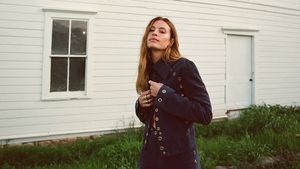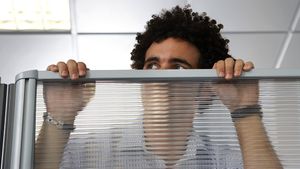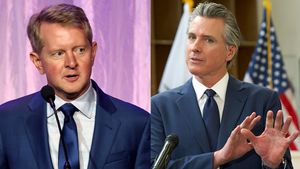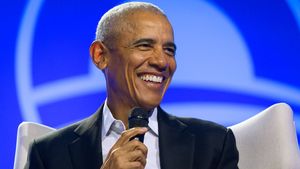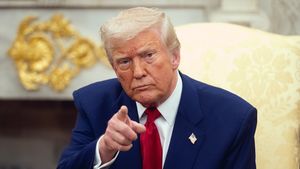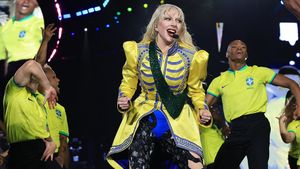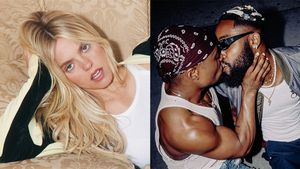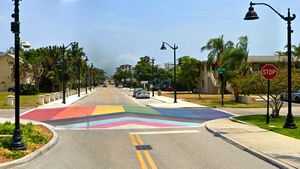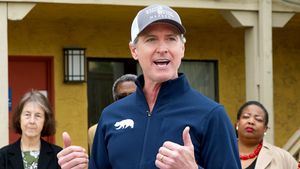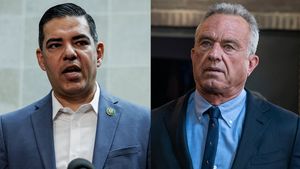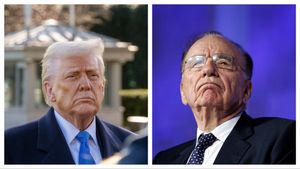Treatment GuideJust DiagnosedSex & DatingAfrican AmericanStigmaAsk the HIV DocPrEP En EspañolNewsVoicesPrint IssueVideoOut 100
CONTACTCAREER OPPORTUNITIESADVERTISE WITH USPRIVACY POLICYPRIVACY PREFERENCESTERMS OF USELEGAL NOTICE
© 2025 Pride Publishing Inc.
All Rights reserved
All Rights reserved
Scroll To Top
By continuing to use our site, you agree to our Privacy Policy and Terms of Use.
In 2004, Isadore Boni, a member of the San Carlos, Ariz., Apache Tribe, decided to stop hiding that he has AIDS. And he did it in a big way'in a news story for a Phoenix TV station. Suddenly in the public eye, Boni found himself facing a new battle he hadn't fully expected'fighting HIV stigma and discrimination among Native Americans, including in his own tribe and extended family. Today, as Boni prepares to mark National Native HIV/AIDS Awareness Day, March 20, he says his struggle to break down dangerous barriers continues but that his resolve to do so is stronger than ever. We've heard a lot about the stigma of HIV among African-Americans and Latinos. How similar is it for Native Americans? It's pervasive. I still face discrimination nearly every day. So does my family. This past World AIDS Day, I was on the cover of our tribal newspaper, and members of my tribe said things to my family like, 'Isn't he dead yet?' and'because I'm gay''He asked for it; he got it.' Attitudes like that must have made it difficult to disclose your status in 2002, when you were diagnosed. For more than two years I actually told people I had cancer. I even did research in medical dictionaries about different kinds of cancer and their symptoms so I could keep pretending. Why was that easier for you? I was too embarrassed to acknowledge it was HIV. I didn't know one other Native person living with HIV, and I thought that I must be the only one. I was educated, but I had bought into that idea that HIV was a white man's disease, and so did the rest of my tribe. Most Native people still do. And now, of course, you know that isn't true. HIV affects thousands of Native Americans, but you don't hear about it because so few HIV-positive Natives are willing to talk about it. Many tribes literally do nothing around HIV awareness and prevention. How do you hope to change that? A handful of other Natives across the country and I are planning to launch the Association of Positive Natives this year. Native Americans who do become positive desperately need a support system to be a part of, to have a group to give them a voice and help them feel not so isolated. But it also would be a base from which to educate Native communities as a whole about HIV and safer sex in a culturally relevant way. That's also something we desperately need. Boni will lead a candlelight vigil for National Native HIV/AIDS Awareness Day at 7 p.m. on March 20 at Steele Indian School Park in Phoenix. Two speakers will talk for the first time publicly about their personal battles against the disease.
From our Sponsors
Most Popular
Lexi Love comes out as HIV+ after Trump deletes federal resources
January 23 2025 11:23 AM
Grindr is reminding us why jockstraps are so sexy and iconic
May 02 2025 5:36 PM
BREAKING NEWS: Trump admin moves to end federal HIV prevention programs
March 18 2025 6:10 PM
Trump's orders prompt CDC to erase HIV resources
January 31 2025 5:29 PM
Celebrating Black History Month with our annual African American issue
February 01 2025 3:28 PM
Tyler TerMeer vows to continue to fight for health care for all
January 28 2025 3:00 PM
Discover the power of Wellness in your life
March 26 2025 12:41 PM
Plus: Featured Video
Latest Stories
Dancer. Healer. Survivor. DéShaun Armbrister is all of the above
July 02 2025 8:23 PM
Two right-wing Supreme Court justices signal they may uphold access to PrEP and more
April 21 2025 4:10 PM
Broadway's best raise over $1 million for LGBTQ+ and HIV causes
April 03 2025 7:15 PM
Plus nominated for 2025 GLAAD Media Award
January 22 2025 12:42 PM
'RuPaul's Drag Race' star Trinity K Bonet quietly comes out trans
December 15 2024 6:27 PM
AIDS Memorial Quilt displayed at White House for the first time
December 02 2024 1:21 PM
BREAKING: Supreme Court rules to save free access to preventive care, including PrEP
June 27 2025 10:32 AM
1985: the year the AIDS crisis finally broke through the silence
June 26 2025 11:24 AM
Trump admin guts $258 million in funding for HIV vaccine research
June 03 2025 3:47 PM
500,000 Children at Risk: PEPFAR Funding Crisis
April 08 2025 3:51 PM
The Talk Season 5 premieres this spring with HIV guidance for the newly diagnosed
March 26 2025 1:00 PM
Jess King is here to help you live your happiest, healthiest life yet
March 24 2025 4:35 PM
A camp for HIV-positive kids is for sale. Here's why its founder is celebrating
January 02 2025 12:21 PM
VIDEO: A man living with HIV discusses his journey to fatherhood
June 10 2025 4:58 PM
HRC holds 'die-in' to protest Trump health care cuts
April 28 2025 2:11 PM
Season 4 of The Switch on resilience & radical self-love returns this spring
March 26 2025 12:20 PM
Gerald Garth is keeping people of color happy and healthy through trying times
March 11 2025 3:38 PM
This long-term HIV survivor says testosterone therapy helped save his life.
December 16 2024 8:00 PM
Ricky Martin delivers showstopping performance for 2024 World AIDS Day
December 05 2024 12:08 PM
































